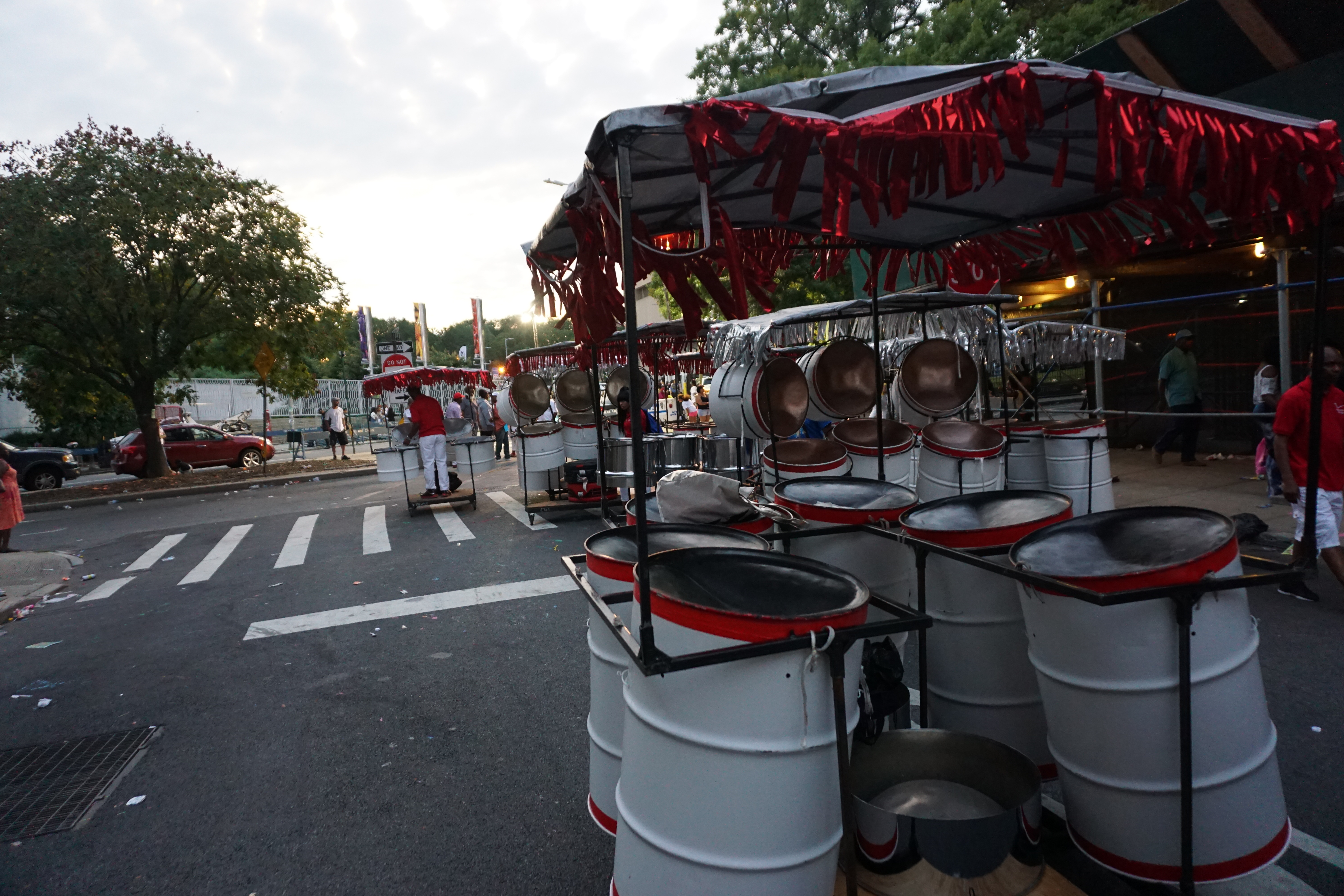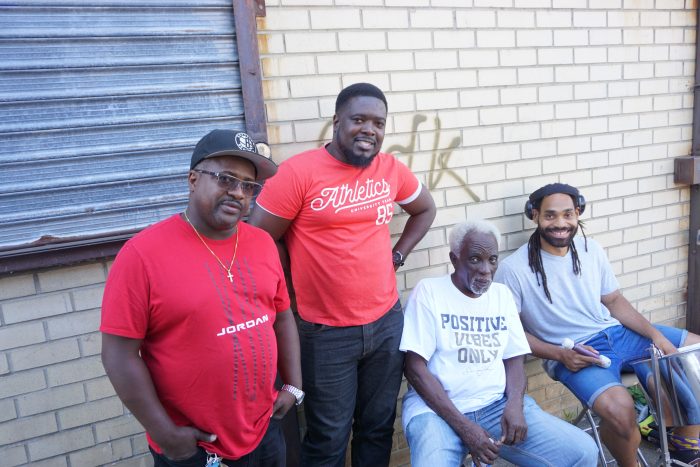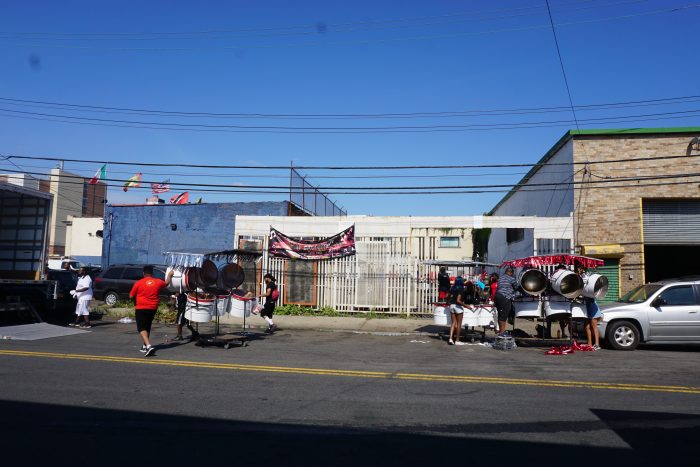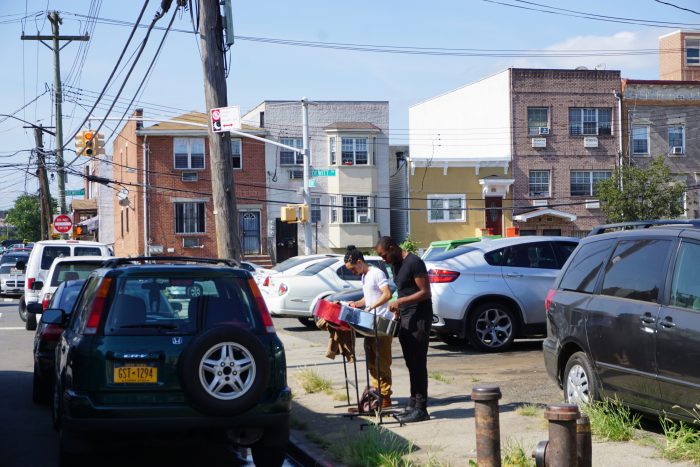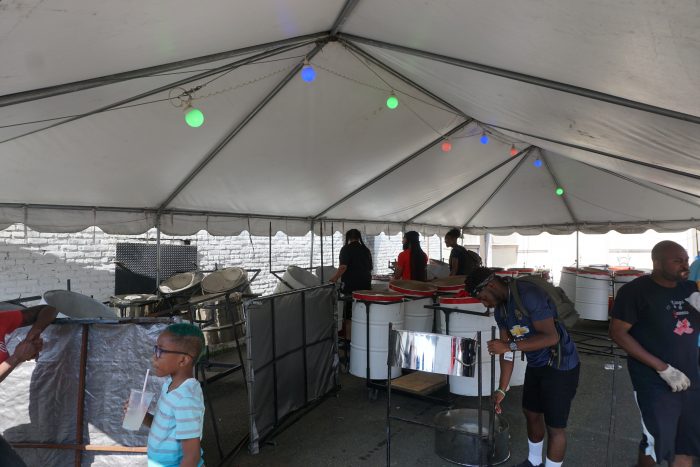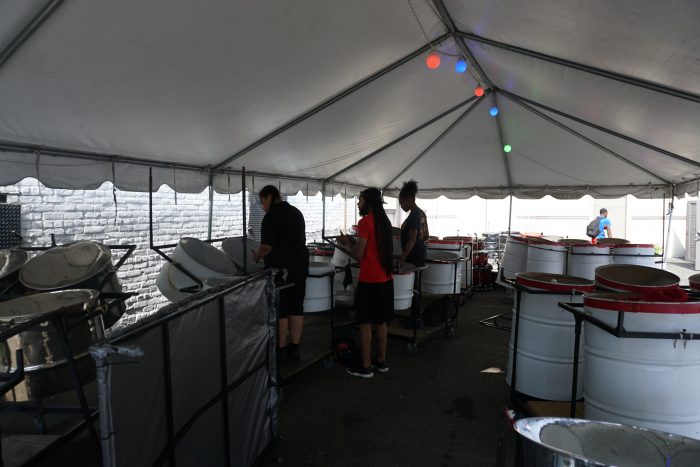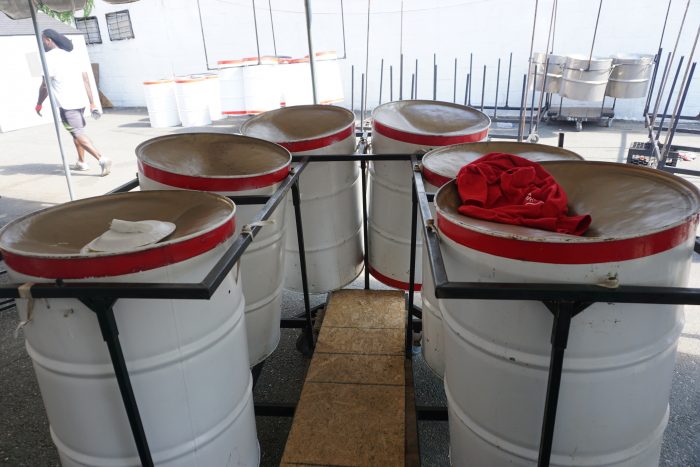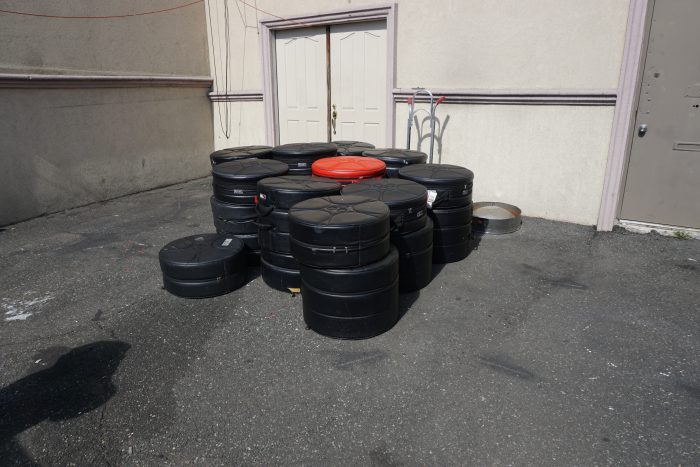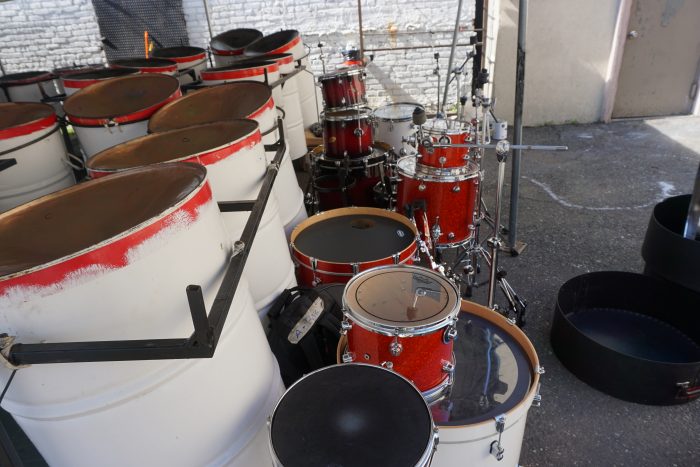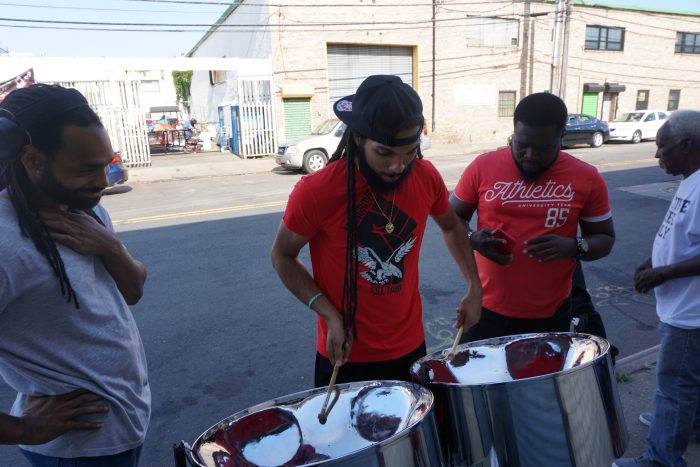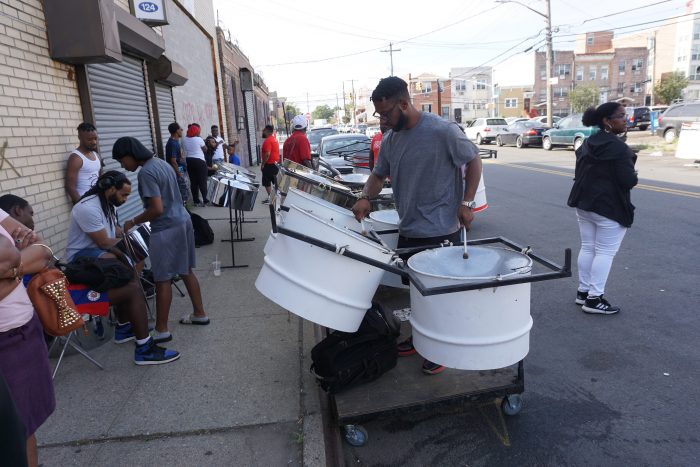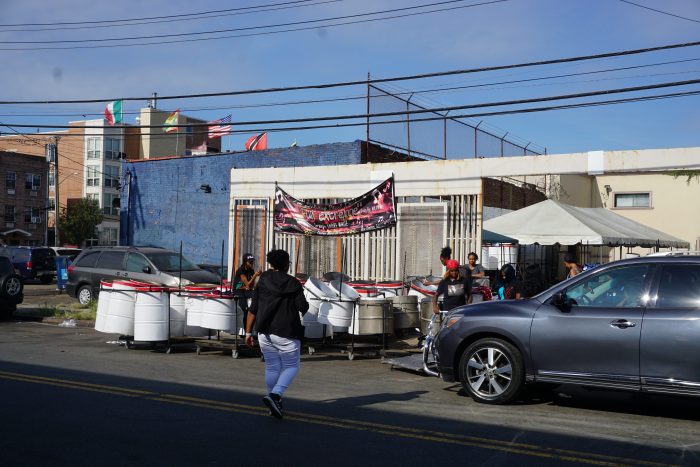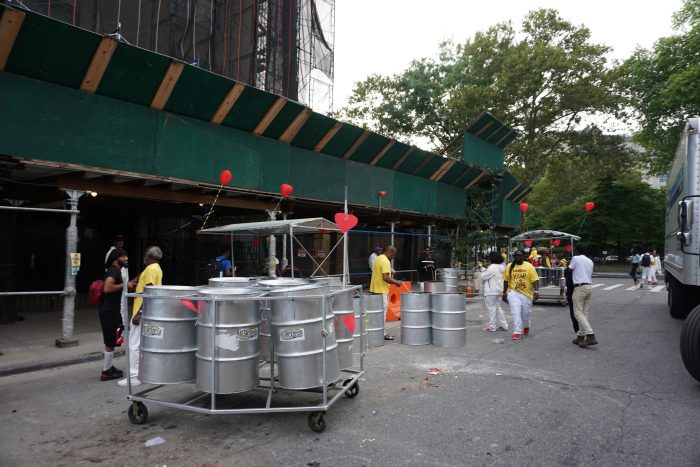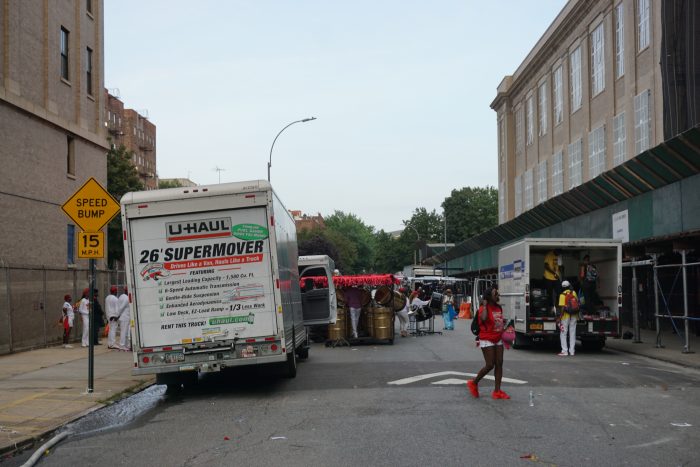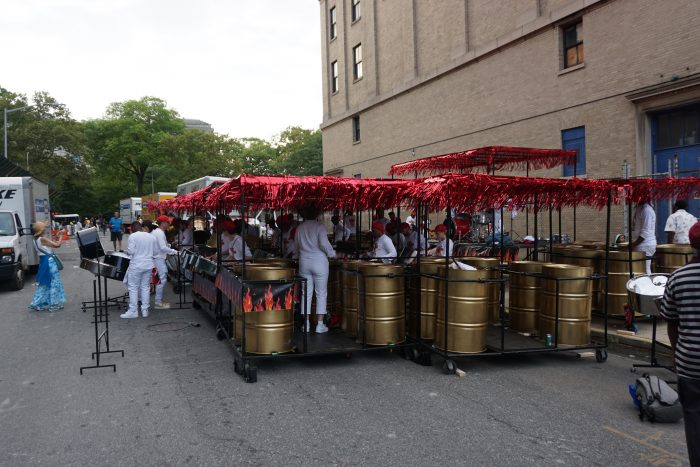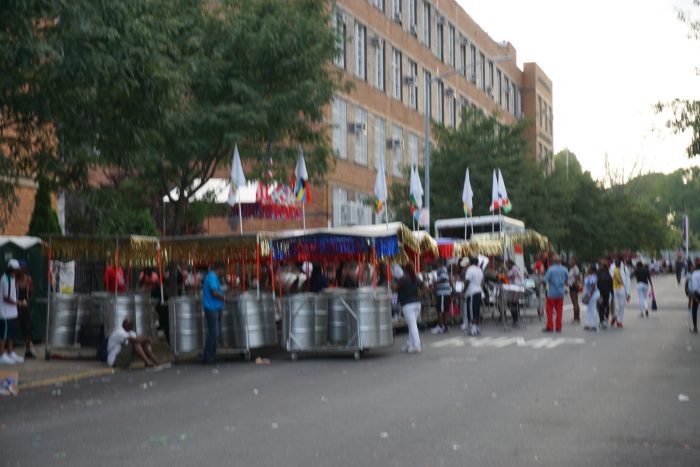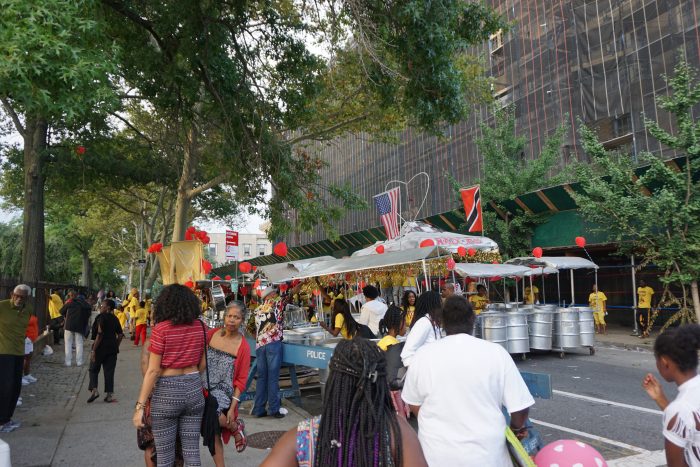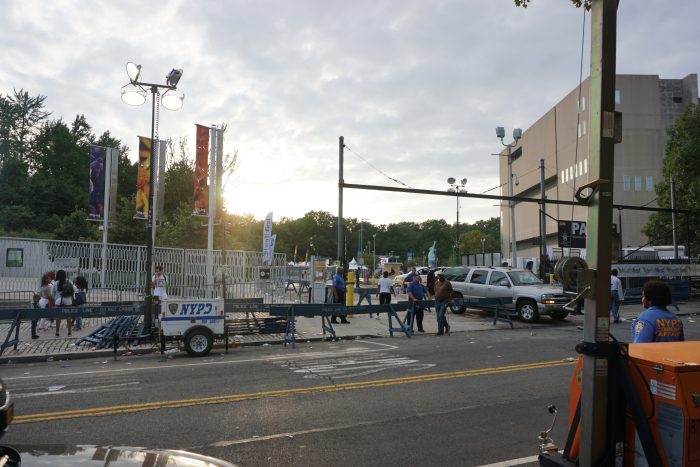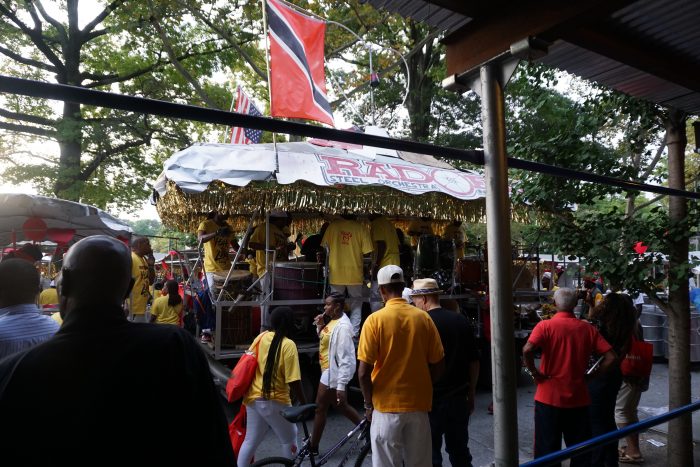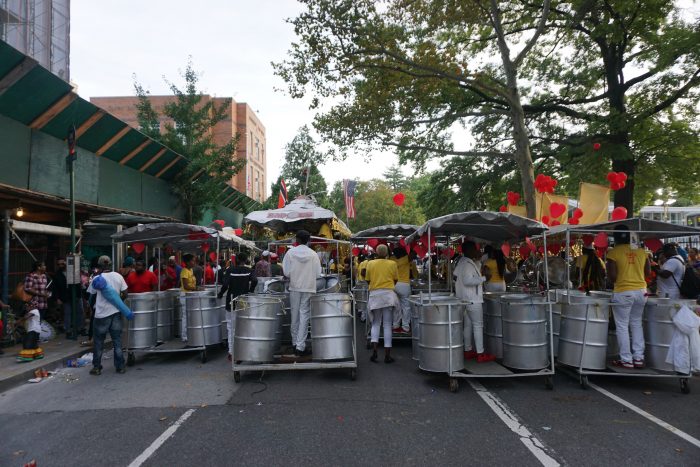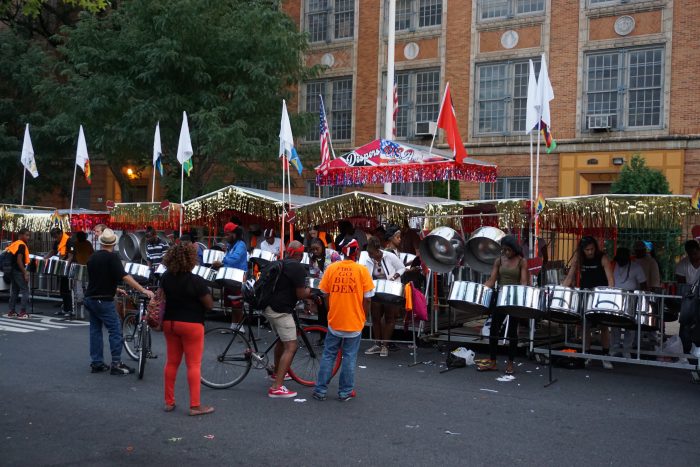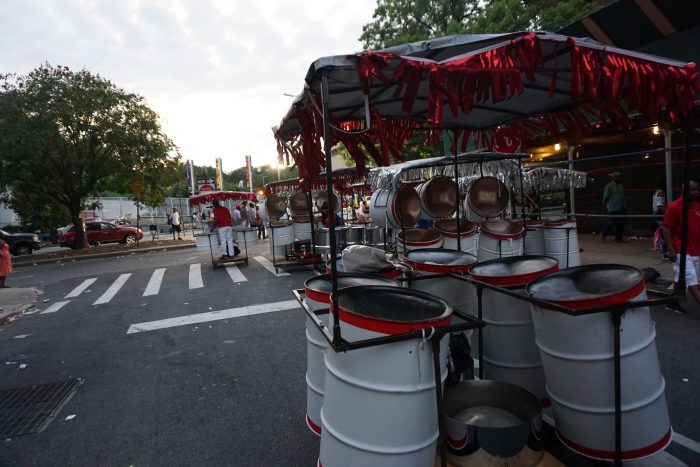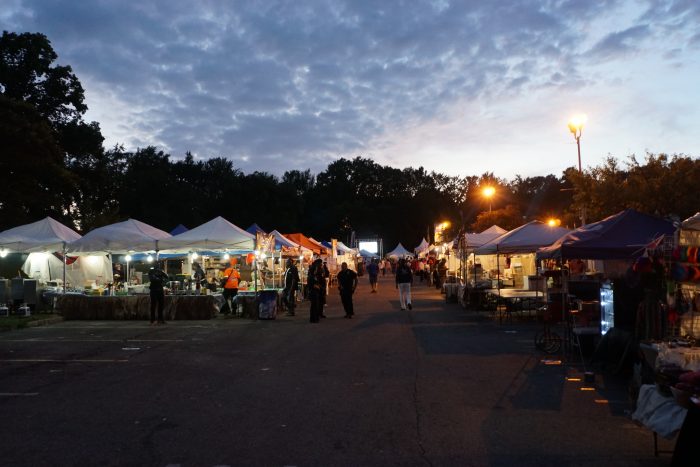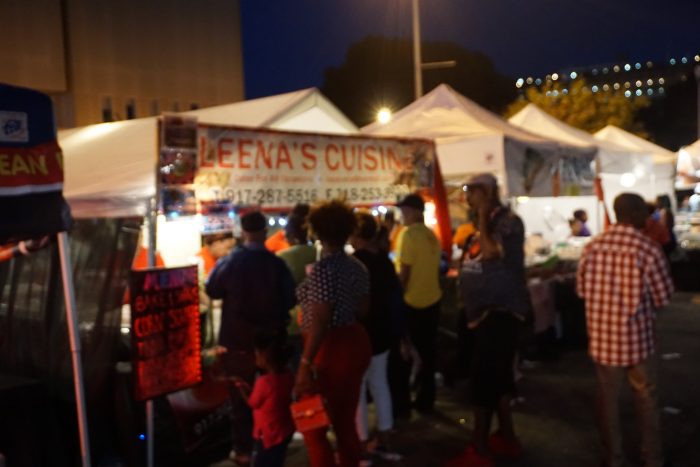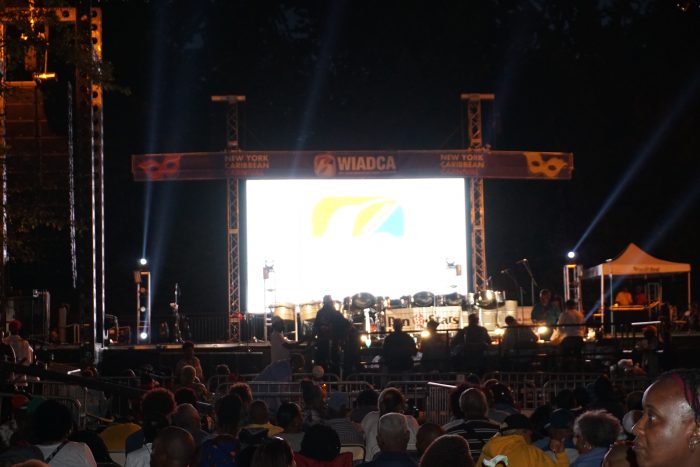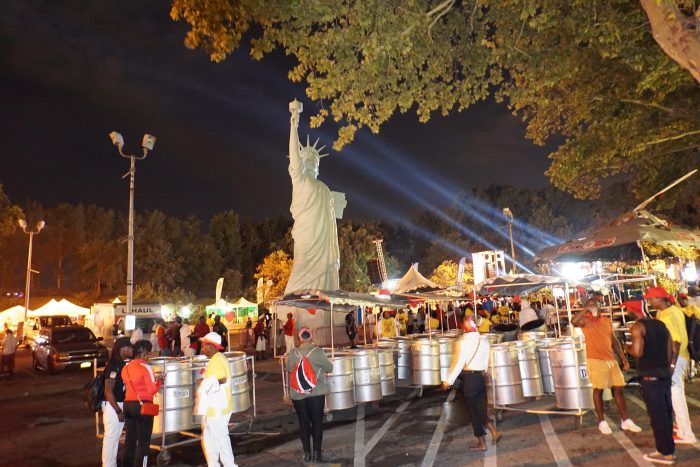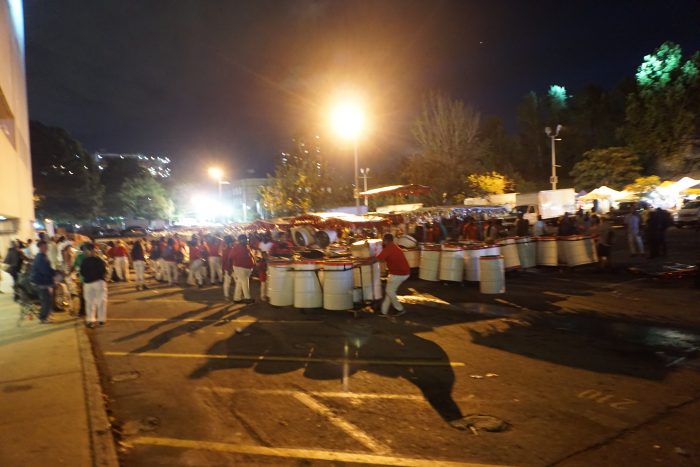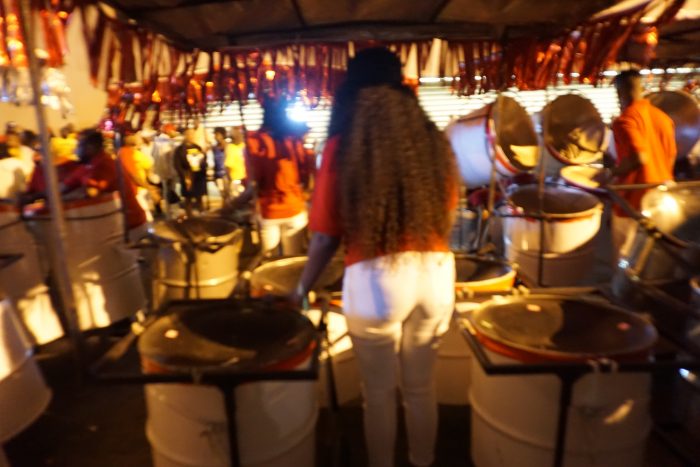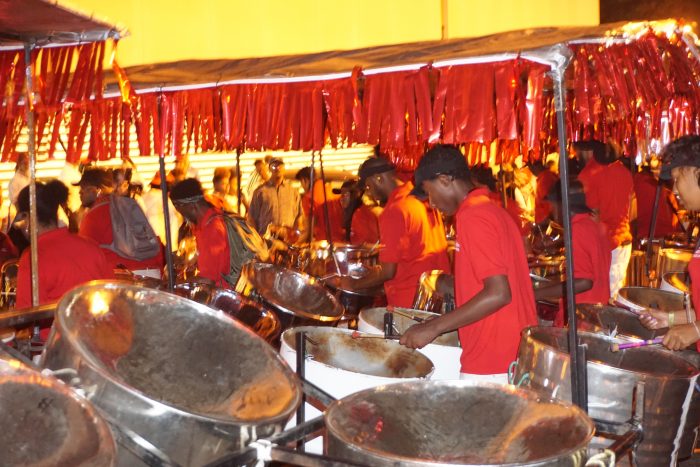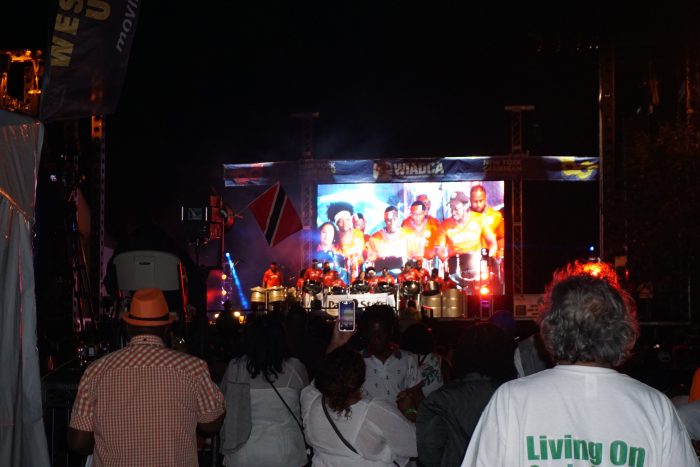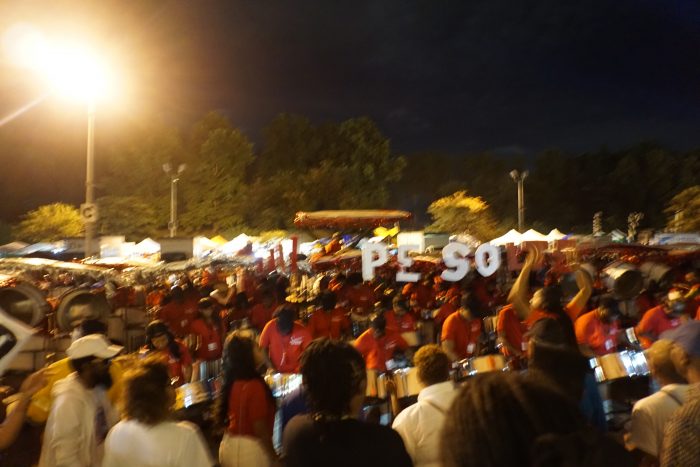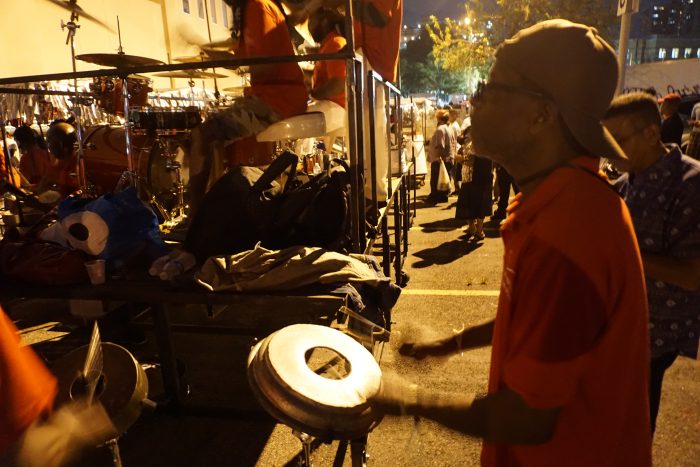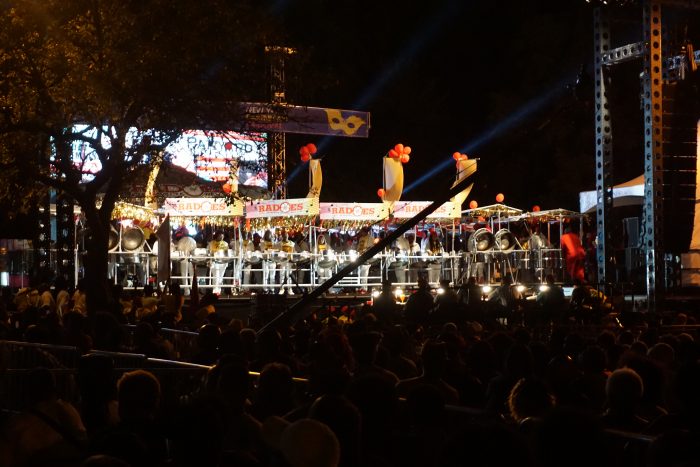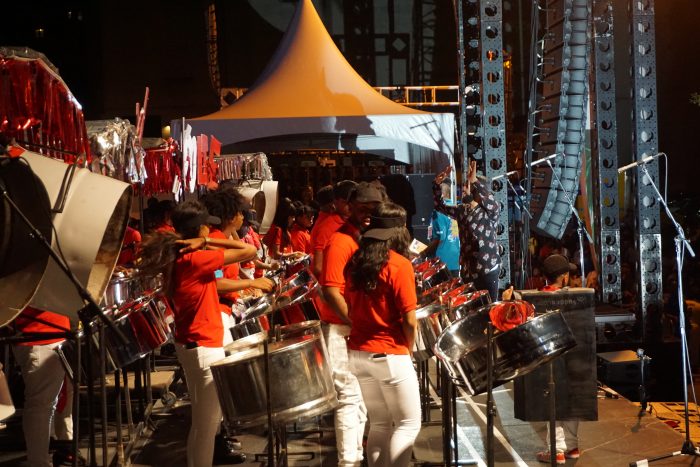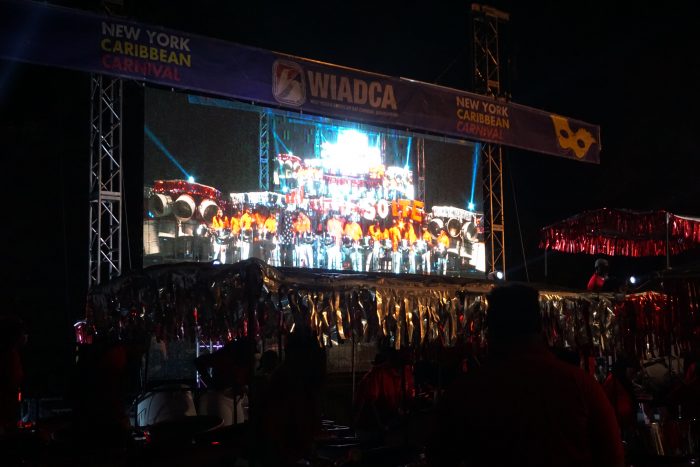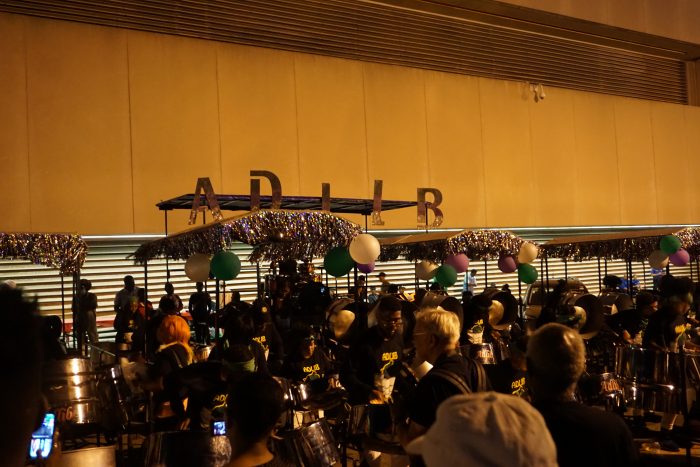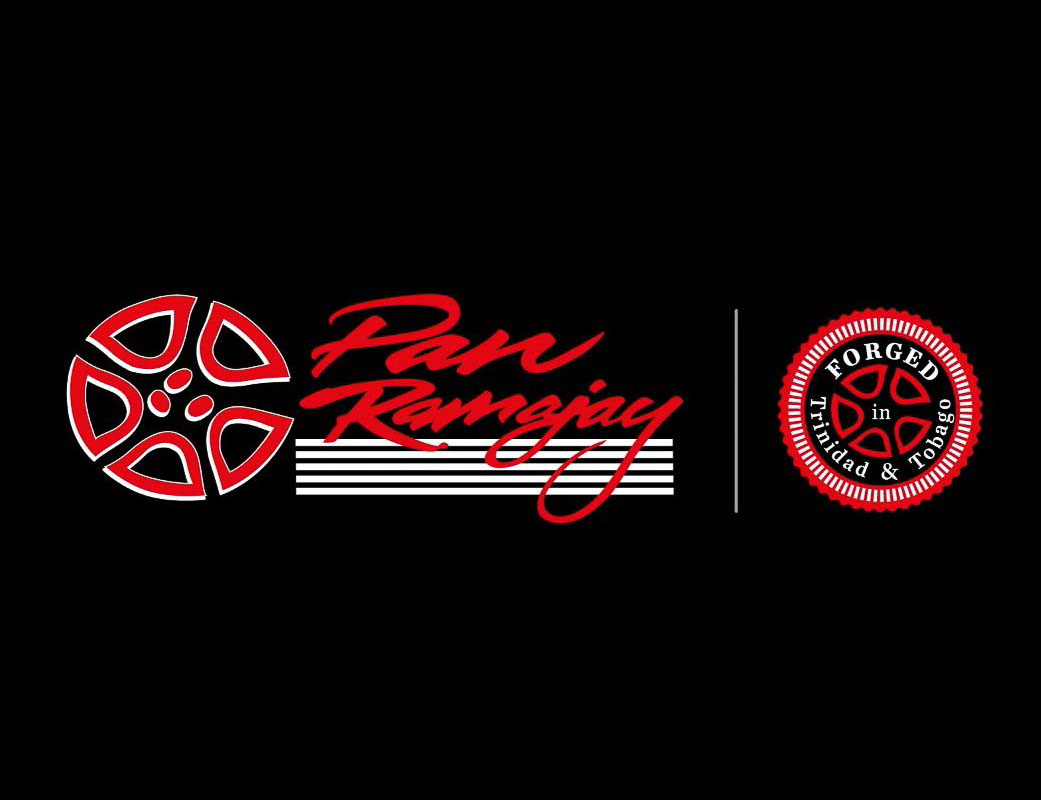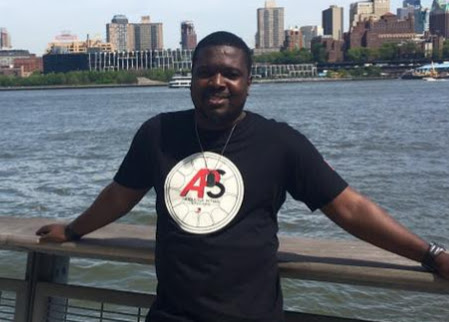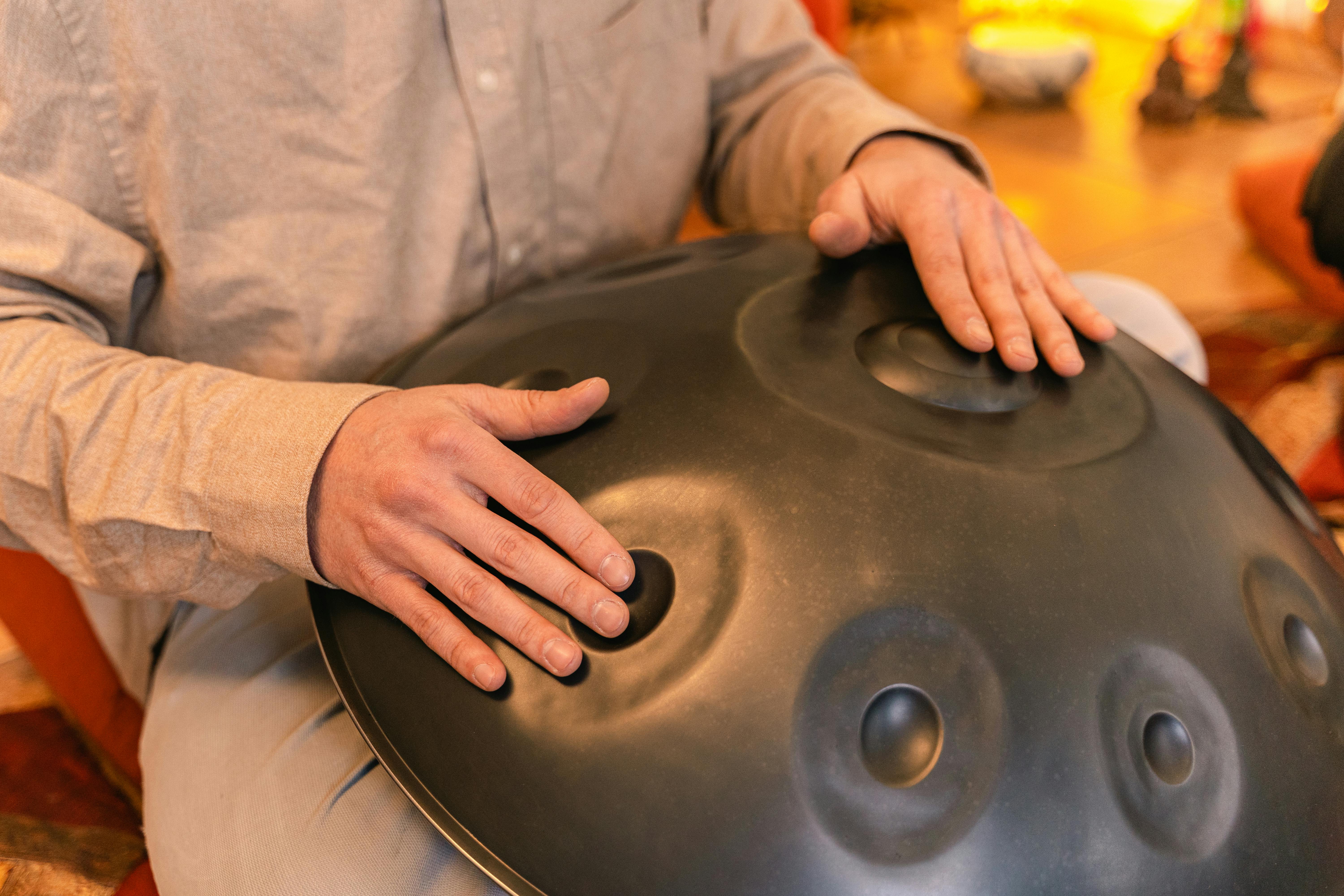One of the most controversial things in recent memory to happen in the global steelpan community occurred at the 2017 New York Panorama in Brooklyn, NY. The rain poured but no contingency plan was in place to move the outdoor competition from the Brooklyn Museum grounds to a suitable replacement. Because of this oversight, the event was moved from Saturday to Sunday and no judging was conducted. The money that was to have gone to all the bands in compensation for months of rehearsals and transportation to the event were up in the air. Word on the street has it that the money was mostly paid to bands around a year later but no champion was crowned. This cloud hung over the head of every band interested in performing and left the future of NY Panorama, and the New York pan scene, in serious question.
Having never attended NY Panorama, I felt it was the right time to attend. So I began reaching out to friends and players that were familiar with the people out there. Eventually I got ahold of Wayne Bernard, a drill master and leader with Pan Evolution Steel Orchestra, also known as PESO.
After explaining who I was and what I hoped to achieve, Bernard was eager to help me in my quest to come to NY, roll in with PESO and help them set up, while also capturing the story of what NY Panorama is like, both in general and considering its recent troubles.
“This year was challenging compared to last year. Many bands and players were unsure if Panorama was going to happen. With that being said, a short season trying to prepare any band will pose to be a challenge with many questions needing answers,” Bernard said. “The main concern going into Panorama this year for us was of course being able to secure a good yard. With the recent development of Brooklyn having many new residential buildings, it’s extremely difficult to find some place that’s affordable, where you can be able to generate funds to help towards Panorama expenses and not disturb neighbors in the community.” Luckily PESO found a new yard with the help of a band supporter.
Loading Time
The panyard was tucked away between businesses in an industrial corridor towards the South-Eastern part of Brooklyn. As I arrived the band had already begun the tear-down process with most of their pans and stand already disassembled.
Across the street from the yard was a familiar face: pannist, keyboardist, outspoken pan advocate, tuner and educator Khuent Rose, tuning up a set of double seconds for the band. After saying hi and crossing the street to help the band work a duo of surprise guests joined him. Notable pan builder/tuner August Peters and long-time Trinidadian pan builder/tuner Bertrand Kelman stood beside Rose, looking on as he tuned nervously. “Kelman and Peters stood over while tuning. I was honored and terrified,” Rose later said in a Facebook post.
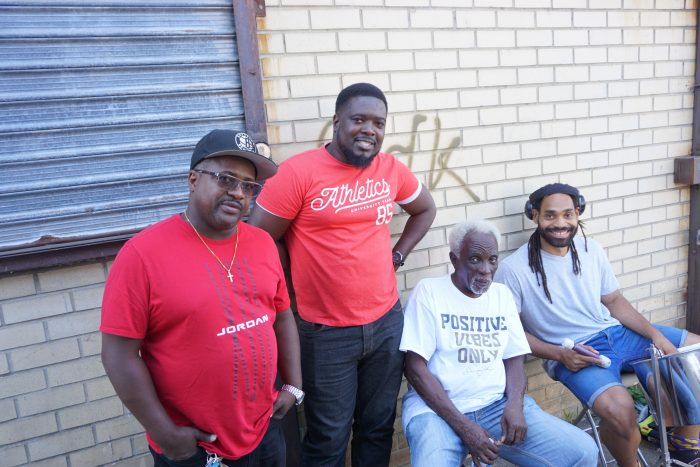
After chatting for a bit, Rose decided to play on the August Peters double seconds set up in front of him. As he expertly played a recognizable piece by Frederic Chopin, I wondered, “Are moments like this what we’re missing on the West Coast?” Soon enough, like a honeycomb attracting bees, a small crowd of pannists stood around, including Andre White, who soon took over on the seconds, dazzling those around him, including me, with a flurry of notes from various calypso tunes.
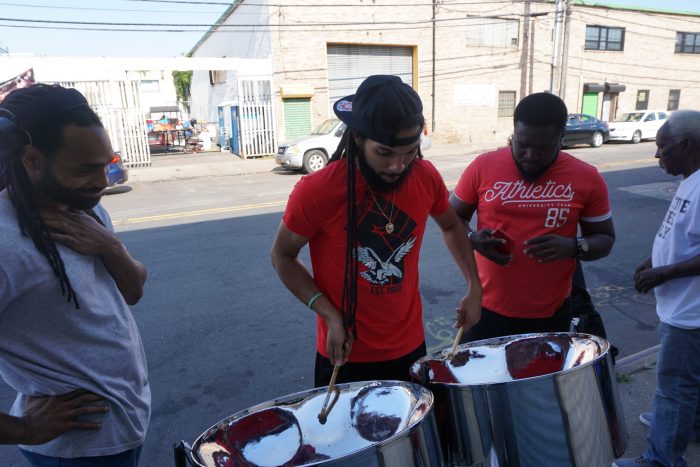
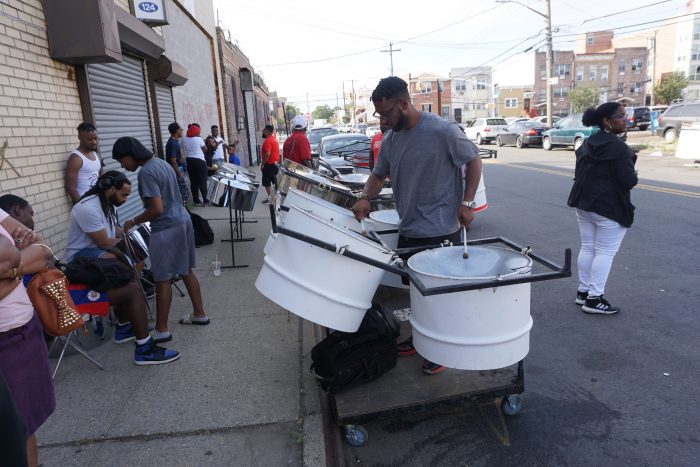
Soon enough, once the jam session had ended, players tore down equipment and began loading into the trucks. I helped move pans around the yard as needed until it was time to roll out. I hitched a ride with one of the players and upon arriving at the Brooklyn Museum grounds I got a glimpse of what the scene would be: hundreds of people filling the streets in different capacities as vendors, fans, band leaders, police and players. The streets all led to a large fairground area where a giant stage resided with a sign that featured the WIADCA logo.
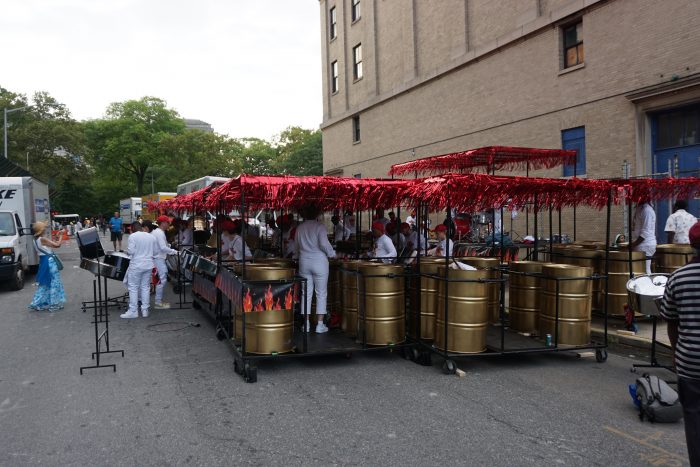
As the band began unloading equipment and other bands began rehearsing on the streets, it became clear that there was one problem: the trucks with the majority of the pans on them had yet to arrive. As time inched closer to the time that the band would need to be set up on the track and rehearsing, I and others became concerned. Then I looked at band leader, Andre White who was as calm as could be. The same could be said of some of the other veterans hanging with the band like drummer and Pan Lara arranger Sheldon Thwaites and Wayne Bernard who were essentially liming and relaxed. Apparently, only the uninitiated who had yet to go to this rodeo need be worried.
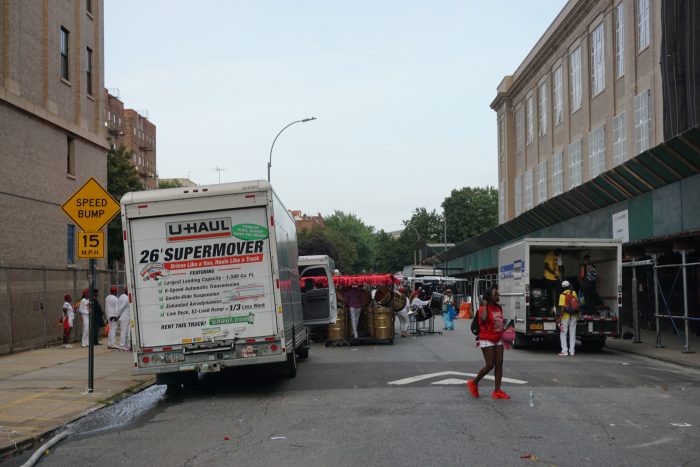
Once darkness fell and more people arrived it became a mess of cars, people and police all converging on the street that separated the neighborhood from the museum grounds. The PESO players and supporters all hurried carts of pans across the busy intersection, stopped briefly by the event staff to check bags as needed. Once we were inside, we found a corner to park the equipment and wait. And wait we did. Up until the last possible minute when the trucks finally arrived enough time for the band to set up and rehearse their piece about two times before being summoned on stage in front of the massive festival crowd, which by that point was likely over a thousand people.
Performance and Aftermath
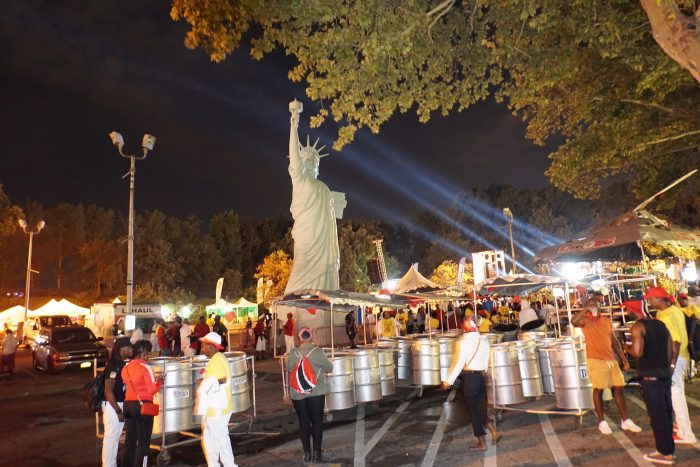
Since I wasn’t playing in the band that night, I walked around the grounds during their time on the track and ran into a familar face: Hueloy Yip Young, otherwise known to the global pan community as Uncle Hueloy, a long-time steelpan advocate known for having played and supported pan since being a founding member of the Harmonites Steel Orchestra in Trinidad. As I approached him, never having met him in the flesh and only knowing him from social media, I introduced myself and he immediately took me under his wing, introducing me to other pan notables in the scene and buying me beer – repeatedly. It was here that I met another amazing pan person who I instantly liked, Kristin Murrell. She introduced me to several notables in the community, including Martin Douglas, president of the USSA (United States Steelband Association).
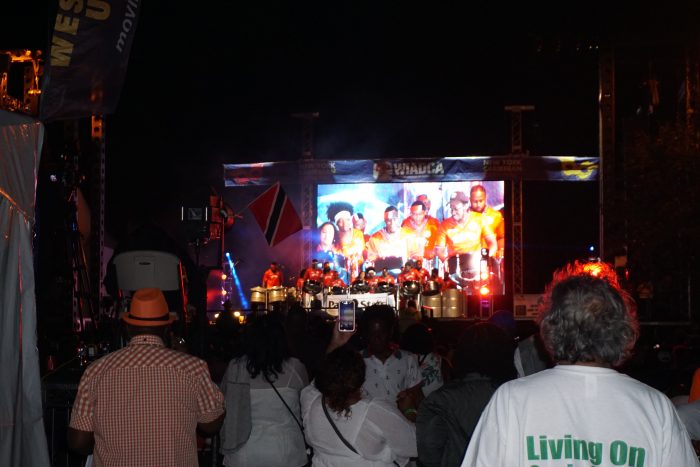
As each band performed there was a noticeable feeling towards those who had the best performance. In Trinidad, Panorama performances range from being all about the popularity of the song being played to political motivations and sometimes more about the arrangement itself. This year seemed to be a combination of all three for both the performers and audience.
“I felt good going into this year’s Panorama despite all of the confusion from the year before. It was a lot of work putting the band together at the last minute like we did, which was mostly due to not really being sure if there was going to be a panorama to begin with,” PESO arranger Andre White said. “I was quite pleased with our performance despite all of the confusion on the day. Never got to rehearse properly before we went on stage so there was a bit of unsettling feeling among the players, but we did well. And for a band that’s only been in existence for three years we have managed to remain in the top three and in the discussion to take it. Only upwards for PESO.”
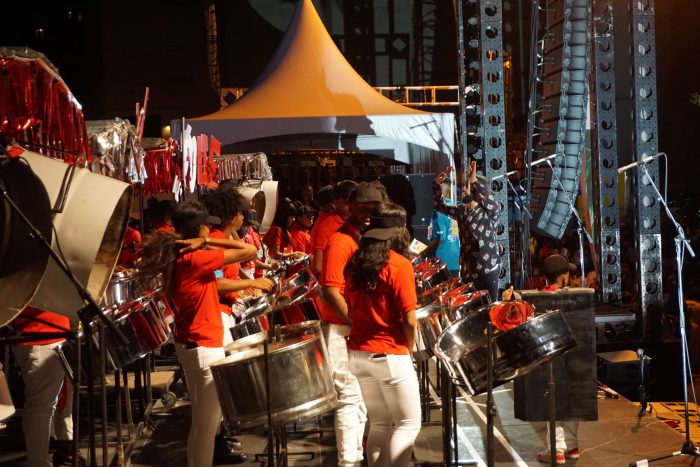
Aside from placing third out of seven bands, behind CASYM and first place winners Despers USA, PESO achieved notoriety across the pond by attracting players from London to play with the band, largely thanks to their dedication to White after Mangrove Steel Orchestra won that event in 2018 with his arrangement of “Hulk”. Members of both Mangrove and Ebony steel orchestras came out to play with PESO.
“I have been fortunate for the past couple of years to usually have a contingency of players come across from the UK to play with the different bands and this year was no different. We had eight players from Endurance and Mangrove that came to give us that strength we needed and it’s appreciated so much,” White said. “My goal with this years arrangement of ‘Hello’ was the same as all of my arrangements and that is to tell a story. This one was actually very different in terms how I constructed the arrangement. The melody in the song was so strong, I just let the song carry itself. The people loved it.”
Being on stage during PESO’s performance I can honestly say it was an epic experience. If watching from the crowd’s perspective is a thrill, imagine getting a first hand look at the band from behind and the side. We’re talking 80 players, including engine room. Similar to Trinidad Panorama, you could likely hear the music from several miles away.
After the bands finished and the judges tallied, you could feel the electricity from the partying festival crowd, drunk on music and booze. Suffice to say, no one was sitting down when the winners were announced.
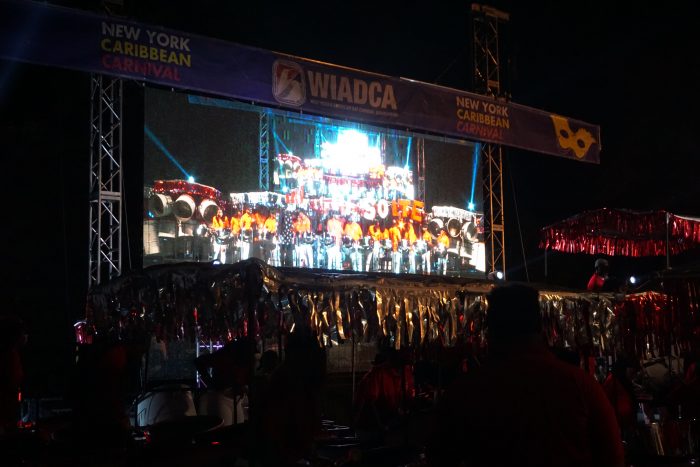
“I felt the band’s performance was a good one, especially seeing how short the season was and having an extremely late start compared to the two previous years,” Bernard said. “Of course the overall goal is to win Panorama but the effort of pulling together and placing in the top three this year I am proud of the players and management team of PESO.”
Future Plans
With a successful NY Panorama now behind them, there was a sense that the future might be looking up for the NY pan scene.
“I hope pan on the whole gets the business aspect together. We need the correct leadership in the governing bodies to push steel and to the levels and platforms in which it deserves to be,” White said.
Bernard echoed that sentiment regarding leadership in the pan community. “In order to improve every year everything revolves around being organized and focused on the task at hand. At the end of the day it really does not matter how good your band, players, song, or instruments are. You have to have a good game plan in place and a fully committed team ready to execute it,” he said. “I feel the status of pan is in a very good place with young talented folks worldwide pushing the envelope to find new innovative ways to push the instrument always. I would like to see it on the mainstream level as other instruments out there. I find right now if many people hear it play they can easily relate and recognize the sound but I would really love to see it more main stream of course such as the Grammy awards or starring in a popular music video for example.”
Considering the struggle the instrument has faced from within in recent years, not just in New York but globally, seeing each region get its affairs in order locally may just be the starting point for global change. Once that’s done, the sky’s the limit. But for now, going out to see a local pan player, band or even a large event like NY Panorama is a good start.

